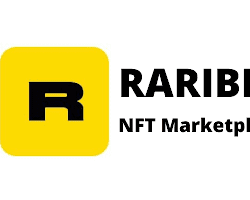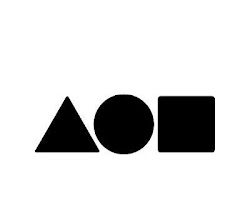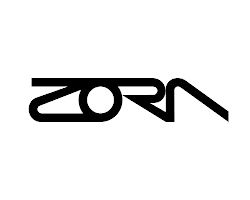Top 10 NFT Marketplaces Shaping The Metaverse Economy

NFT marketplaces play a crucial role in the development and functioning of the metaverse economy. NFTs are digital assets that are unique and indivisible, representing ownership or proof of authenticity of a specific item or piece of content. These assets can include virtual land, virtual goods, digital art, collectibles, in-game items, and more.
The importance of NFT marketplaces for the metaverse economy can be understood through the following key points:
1. Ownership and Authenticity: NFT marketplaces provide a secure and transparent way to establish ownership and verify the authenticity of digital assets within the metaverse. The unique nature of NFTs ensures that each item has a distinct identity and cannot be replicated or tampered with. This is especially valuable in a virtual environment where the creation and distribution of digital assets are prevalent.
2. Economic Value and Digital Asset Monetization: NFTs enable creators and users to monetize their digital assets in the metaverse. Artists, game developers, content creators, and virtual landowners can tokenize their creations and sell them on NFT marketplaces, allowing them to retain ownership rights and earn revenue from their work. This introduces new economic opportunities and incentives for creators, fostering innovation and driving the growth of the metaverse economy.
3. Interoperability and Cross-Platform Compatibility: NFT marketplaces facilitate interoperability between different metaverse platforms and applications. Users can buy, sell, and trade NFTs across various virtual worlds and gaming environments, expanding the reach and accessibility of digital assets. This interoperability encourages collaboration, cross-platform interactions, and the seamless transfer of assets between different metaverse experiences.
4. Community Building and Social Engagement: NFT marketplaces often have vibrant communities surrounding them. These communities bring together creators, collectors, enthusiasts, and investors who share a common interest in digital assets and the metaverse. Marketplaces provide a space for community members to connect, interact, and engage in discussions, fostering a sense of belonging and collaboration within the metaverse ecosystem.
5. Intellectual Property Rights and Royalties: NFTs can embed smart contracts that define the terms and conditions of ownership and usage rights. This allows creators to retain control over their intellectual property and establish royalty mechanisms. For example, artists can receive royalties each time their digital artwork is resold, ensuring ongoing compensation for their work even after the initial sale. These features promote fair and transparent compensation models within the metaverse economy.
6. Gamification and Incentive Structures: NFTs can be integrated into gaming experiences within the metaverse, creating incentive structures and rewarding players for their achievements and contributions. Virtual items and collectibles can have real-world value, providing an additional layer of motivation for players to explore, compete, and interact within virtual worlds. This gamification aspect drives user engagement and promotes the growth of the metaverse economy.
In summary, NFT marketplaces are instrumental in establishing ownership, enabling monetization, fostering community, promoting interoperability, and facilitating economic transactions within the metaverse economy. They serve as a key infrastructure layer that supports the growth and sustainability of the metaverse by providing a decentralized and transparent marketplace for digital assets.
Concept of Metaverse
The concept of the metaverse refers to a virtual universe or a collective virtual shared space where people can interact with a computer-generated environment and other users in real-time. It is a term that has gained significant attention and popularity in recent years, and it has become a topic of discussion within the technology and gaming industries, as well as among futurists and enthusiasts.
The metaverse can be thought of as an evolution of the internet, moving beyond static web pages and two-dimensional social media platforms to a more immersive and interactive digital realm. It represents a convergence of various technologies, including virtual reality (VR), augmented reality (AR), artificial intelligence (AI), blockchain, and other emerging technologies.
In the metaverse, users can create digital avatars that represent themselves and navigate through a vast, persistent, and interconnected virtual world. They can interact with other users, explore different environments, engage in various activities, and even conduct business transactions. The metaverse aims to provide a seamless and immersive experience, blurring the line between the physical and digital realms.
One of the essential aspects of the metaverse is its scalability and openness. It should be accessible to anyone with an internet connection, allowing users from all over the world to participate and contribute. Additionally, the metaverse should be interoperable, enabling users to move seamlessly between different platforms, applications, and virtual spaces.
The metaverse holds immense potential across multiple domains. It can revolutionize the way we work, learn, communicate, and entertain ourselves. For example, in the realm of work, the metaverse could offer virtual offices where remote teams can collaborate, conduct meetings, and share resources in a more immersive and engaging manner. It could also provide new avenues for education, allowing students to explore virtual classrooms, interactive simulations, and experiential learning environments.
In terms of entertainment and gaming, the metaverse can offer a rich and dynamic experience. It can serve as a platform for socializing, hosting virtual events, concerts, and conferences. Moreover, it can provide opportunities for creative expression and user-generated content, allowing individuals to build and customize their virtual spaces, design and sell virtual assets, and even create their own games or experiences.
The concept of the metaverse is not without its challenges. Technical hurdles, such as creating realistic virtual environments, ensuring smooth interactions, and handling vast amounts of data and computations, need to be overcome. Additionally, there are concerns related to privacy, security, and the ethical use of AI within the metaverse.
Several companies and projects have already started exploring and building elements of the metaverse. They range from social VR platforms and virtual worlds like VRChat and Second Life to gaming platforms like Roblox and Fortnite. Major technology companies and tech pioneers have also shown interest in the metaverse, envisioning it as the next frontier of the internet.
It is important to note that the metaverse is still a developing concept, and its full realization may take time. However, as technology continues to advance and more innovations emerge, the metaverse has the potential to reshape how we interact with digital content, connect with others, and experience the virtual world.
Also read: Top 6 NFT Marketplaces That Are Doing Incredibly Well
Top 10 NFT Marketplaces Shaping the Metaverse Economy
The metaverse is a rapidly growing digital ecosystem that is being built on the foundation of blockchain technology and non-fungible tokens (NFTs). NFTs are unique digital assets that can represent anything from art and collectibles to in-game items and real estate.
As the metaverse continues to evolve, NFT marketplaces are playing an increasingly important role in facilitating the exchange of these digital assets. Here are the top 10 NFT marketplaces that are shaping the metaverse economy:
- OpenSea
OpenSea is the largest NFT marketplace by volume, with over $30 billion in sales to date. It offers a wide variety of NFTs for sale, including art, collectibles, and in-game items.

- Axie Marketplace
Axie Marketplace is the online shop for the popular blockchain game Axie Infinity. Players can use the marketplace to buy, sell, and trade Axies, which are digital pets that can be used to battle, collect, and earn rewards.
- Larva Labs/CryptoPunks
Larva Labs is the creator of the CryptoPunks, a collection of 10,000 unique NFTs that have become one of the most valuable NFT collections in the world. The CryptoPunks marketplace allows users to buy, sell, and trade CryptoPunks. 
- NBA Top Shot Marketplace
NBA Top Shot is a digital collectible platform that allows fans to buy, sell, and trade NBA highlight moments. The platform has been a huge success, with over $1 billion in sales to date.
- Rarible
Rarible is a decentralized NFT marketplace that allows users to create, sell, and trade NFTs without the need for a third party. The platform has become a popular destination for artists and collectors alike.

- SuperRare
SuperRare is a high-end NFT marketplace that focuses on selling curated digital art. The platform has a reputation for selling some of the most valuable NFTs in the world.
- Foundation
Foundation is a creator-centric NFT marketplace that allows artists to sell their work directly to collectors. The platform has a reputation for being a place where emerging artists can launch their careers. 
- Nifty Gateway
Nifty Gateway is a popular NFT marketplace that is known for its high-profile drops. The platform has sold NFTs from artists such as Beeple and Grimes.
- Zora
Zora is a decentralized NFT marketplace that is focused on building a community of collectors and creators. The platform is built on the Zora Protocol, which is a set of open-source tools that allow anyone to create their own NFT marketplace. 
- BakerySwap
BakerySwap is a decentralized NFT marketplace that is built on the Binance Smart Chain. The platform offers a variety of features, including staking, liquidity mining, and NFT auctions.

These are just a few of the many NFT marketplaces that are shaping the metaverse economy. As the metaverse continues to grow, we can expect to see even more NFT marketplaces emerge.
Benefits of NFT marketplaces for Metaverse
NFT (Non-Fungible Token) marketplaces offer several benefits for the development and functioning of the metaverse. These marketplaces serve as platforms for buying, selling, and trading digital assets represented as NFTs. Here are some key benefits of NFT marketplaces for the metaverse:
1. Ownership and Authenticity: NFT marketplaces provide a decentralized and transparent way to establish ownership and prove the authenticity of digital assets within the metaverse. Each NFT has a unique identifier recorded on a blockchain, ensuring that the asset is one-of-a-kind and cannot be duplicated or forged. This feature is particularly important in the metaverse, where the creation and exchange of digital assets are prevalent.
2. Monetization of Digital Assets: NFT marketplaces enable creators, artists, game developers, and content creators to monetize their digital assets in the metaverse. By tokenizing their creations and selling them as NFTs, they can retain ownership rights and earn revenue from the sales. This introduces new economic opportunities for creators, as they can directly sell their work to a global audience without intermediaries. NFT marketplaces facilitate direct peer-to-peer transactions, allowing creators to benefit directly from the value of their creations.
3. Global Access and Reach: NFT marketplaces offer a global platform for creators and users to access and engage with digital assets in the metaverse. The decentralized nature of NFTs allows anyone with an internet connection to participate in the marketplace, breaking down geographical barriers. This global accessibility expands the potential audience for creators and enhances the exposure of their work, leading to increased visibility and opportunities for collaboration.
4. Interoperability and Cross-Platform Integration: NFT marketplaces facilitate interoperability between different metaverse platforms and applications. This means that users can buy, sell, and trade NFTs across various virtual worlds, gaming environments, and other metaverse experiences. The ability to transfer assets seamlessly between platforms encourages cross-platform interactions, fosters collaboration, and expands the metaverse ecosystem. It also allows users to build diverse collections of NFTs and leverage them across multiple metaverse experiences.
5. Community Building and Engagement: NFT marketplaces foster vibrant communities of creators, collectors, enthusiasts, and investors. These communities revolve around shared interests in digital assets, the metaverse, and the associated cultural and artistic expressions. Marketplaces provide a space for community members to connect, interact, and engage in discussions. This social aspect of NFT marketplaces enhances the sense of belonging and collaboration within the metaverse ecosystem, promoting the growth of a supportive and active community.
6. Royalties and Intellectual Property Rights: NFTs can embed smart contracts that define the terms and conditions of ownership and usage rights. This enables creators to retain control over their intellectual property and establish royalty mechanisms. For example, artists can receive royalties each time their NFTs are resold, ensuring ongoing compensation for their work even after the initial sale. This feature promotes fair and transparent compensation models within the metaverse economy, empowering creators and incentivizing further innovation.
7. Gamification and Incentives: NFT marketplaces can integrate with gaming experiences in the metaverse, introducing gamification elements and incentive structures. Virtual items, collectibles, and in-game assets represented as NFTs can have real-world value, providing additional motivation for players to engage, compete, and explore virtual worlds. This gamification aspect drives user engagement, increases user retention, and promotes the growth of the metaverse economy.
In summary, NFT marketplaces bring numerous benefits to the metaverse by enabling ownership, monetization, global access, interoperability, community building, royalties, and gamification. These marketplaces serve as critical infrastructure for the metaverse, facilitating the exchange of digital assets and supporting the growth and sustainability of the metaverse ecosystem. They empower creators, artists, and users, providing them with new opportunities to participate, engage, and prosper in the metaverse economy.
Future of NFT Marketplaces and Metaverse Economy
The future of NFT marketplaces and the metaverse economy holds immense potential for transformative developments in various sectors. Here is a detailed exploration of what lies ahead:
1. Expansion of Digital Asset Categories: NFT marketplaces will continue to expand beyond their current offerings of digital art, collectibles, and virtual land. We can expect to see a wider range of digital assets being tokenized and traded, including virtual fashion, music, movies, virtual real estate, virtual goods, and even intellectual property rights. As the metaverse economy evolves, NFT marketplaces will serve as platforms for the exchange of diverse digital assets, catering to different interests and industries.
2. Integration with Real-World Assets: NFT marketplaces have the potential to bridge the gap between the digital and physical worlds. We can anticipate the tokenization and trading of real-world assets such as real estate, luxury items, and rare physical collectibles. By representing these assets as NFTs, marketplaces can offer fractional ownership, easy transferability, and enhanced liquidity. This integration of real-world assets will blur the lines between physical and digital ownership, opening up new avenues for investment and wealth creation in the metaverse economy.
3. Enhanced Interoperability and Cross-Platform Integration: Interoperability between different metaverse platforms and applications will be a significant focus in the future. NFT marketplaces will play a crucial role in facilitating seamless asset transfer and cross-platform compatibility. Users will be able to buy, sell, and use NFTs across multiple metaverse experiences, ensuring that their digital assets retain value and utility in different virtual worlds. This interoperability will foster collaboration, creativity, and the growth of a connected metaverse ecosystem.
4. Augmented Reality (AR) Integration: As augmented reality technology advances, NFT marketplaces will likely integrate AR capabilities. This integration will allow users to experience their NFTs in the physical world, overlaying digital assets onto the real environment through mobile devices or AR glasses. For example, users could display their digital art in their physical space or interact with virtual objects in a mixed reality setting. AR integration will enhance the immersive nature of the metaverse, creating unique and interactive experiences for users.
5. Enhanced Social and Community Features: NFT marketplaces will continue to evolve as vibrant social hubs. They will provide enhanced features for community building, communication, and collaboration. Users will be able to connect with like-minded individuals, join interest-based groups, participate in virtual events, and engage in shared experiences. Marketplaces will foster a sense of belonging and facilitate meaningful interactions, creating a thriving community ecosystem within the metaverse economy.
6. Metaverse Governance and Standards: With the growth of the metaverse economy, the need for governance and standards will become crucial. NFT marketplaces will contribute to the development of protocols and frameworks that ensure transparency, security, and fairness in transactions. Standards for metadata, provenance, and intellectual property rights will be established to protect creators and users. Governance models may emerge to address issues such as content moderation, dispute resolution, and the prevention of fraudulent activities. These measures will foster trust and confidence within the metaverse ecosystem.
7. Integration of AI and Virtual Reality (VR): NFT marketplaces will leverage artificial intelligence (AI) and virtual reality (VR) technologies to enhance user experiences. AI algorithms can assist in discovering, curating, and recommending NFTs based on user preferences and behaviors. VR integration will provide more immersive and realistic interactions with digital assets and virtual environments. Users will be able to explore virtual galleries, attend virtual concerts, and engage in virtual experiences, further blurring the boundaries between the physical and virtual worlds.
8. Sustainable and Eco-Friendly Practices: As the metaverse economy grows, there will be a greater focus on sustainability and eco-friendly practices. NFT marketplaces will prioritize energy-efficient blockchain solutions and explore alternatives to high-energy-consuming consensus mechanisms like proof-of-work. Additionally, marketplaces may incentivize and reward environmentally conscious behaviors, such as the creation and purchase of eco-friendly NFTs or contributions to environmental causes through NFT sales. This emphasis on sustainability will ensure that the metaverse economy develops in an environmentally responsible manner.
In conclusion, the future of NFT marketplaces and the metaverse economy is poised for significant advancements. We can expect to see the expansion of digital asset categories, integration with real-world assets, enhanced interoperability, augmented reality integration, improved social features, governance and standards, AI and VR integration, and a focus on sustainability. As these developments unfold, NFT marketplaces will play a central role in shaping the metaverse economy, fostering creativity, economic opportunities, and immersive experiences for users across the globe.
Also read: The Top 10 New NFT marketplaces That Are Creating The Future Of NFTs




























































